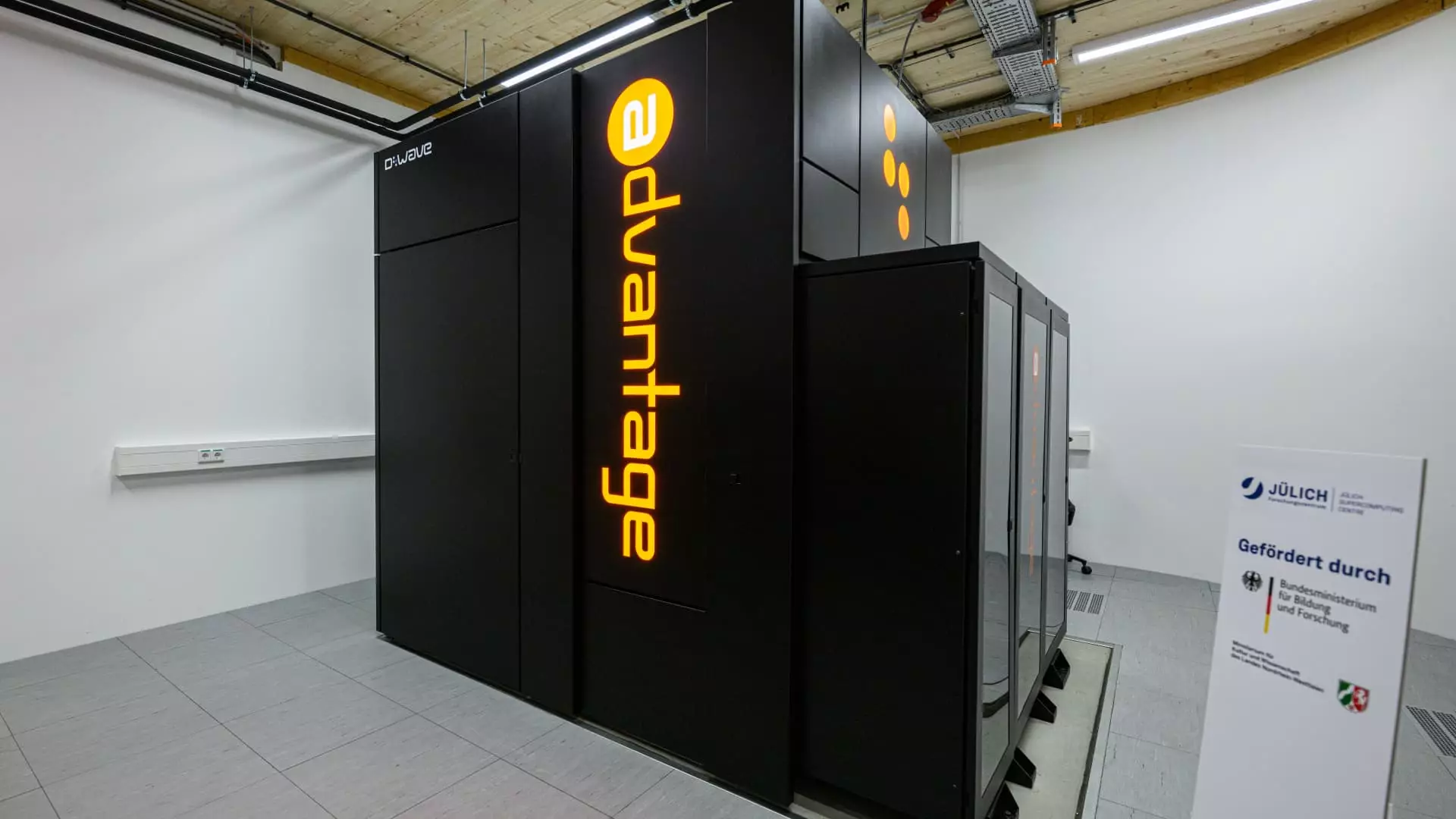In a landscape already brimming with tech fervor, D-Wave Quantum’s stock has skyrocketed by an astonishing 26%. The company’s announcement of its new computing system, dubbed Advantage2, has taken the investing world by storm. The implications of advancements in quantum computing are far-reaching, challenging the status quo of traditional computing paradigms. This 26% leap isn’t just a number; it signifies a paradigm shift where established tech companies may soon find themselves being outpaced by quantum innovators. In an era where agility and foresight dictate success, investors can hardly ignore the luminous potential of such breakthrough technologies.
Agilysys: The Unsung Hero of Hospitality Software
With a 21% increase in stock value, Agilysys is not merely bouncing back; it is redefining expectations in the enterprise software sector. The company’s adjusted EBITDA of $14.8 million surpassed even the most optimistic estimates, showcasing a level of operational efficiency that many counterparts in the market can only dream of. As economic uncertainties loom, agility in the hospitality industry is paramount and Agilysys is now a front-runner in delivering sophisticated tools to those navigating these turbulent waters. Disturbingly, it raises the question: will investors now overlook the more established players in technology for these nimble firms, spurred by their innovative solutions?
Amer Sports: Taking the Bull by Its Horns
Amer Sports has made an impressive 17% jump following the announcement of very encouraging earnings. Their ability to intuitively adjust to market demands positions them strongly amidst tariff challenges, demonstrating their robust pricing power and diverse consumer reach. At a time when many companies are struggling to navigate supply chain disruptions, Amer has secured a path forward, accentuating the importance of being adaptable. The robustness of their business model also begs the question of whether traditional sporting giants can withstand such nimbleness—or will they be left to grapple with outdated strategies?
Moderna & Pfizer: The Pharma Power Struggle
Vaccination efforts have taken an intriguing turn, with Moderna seeing a 9% gain due to newly released regulatory guidelines by the FDA for Covid-19 vaccine boosters. This revelation also positively impacted Pfizer, albeit modestly, lifting its stock by nearly 2%. In a sector where adaptability is crucial, this regulatory shift means that both companies must stay ahead of a constantly evolving medical landscape to maintain investor confidence. What is alarming, however, is the public’s perception of these pharmaceutical giants, which often swings in tandem with market performance rather than genuine regard for patient welfare.
Pony AI: A Cautionary Tale of Ambition
While Pony AI has witnessed a 5% increase thanks to astounding growth in its budding robotaxi services, it also offers a cautionary tale about shared risks in the tech industry. Though revenues have surged by 200%, the stark reality remains; they still posted a net loss of $37 million. In an age where autonomous vehicles are touted as the future, investors should tread carefully. The exuberance showcased in stock rallies often leads to overvaluation, ultimately raising questions about sustainability in emergent industries.
The Mixed Bag of Earnings: Viking Holdings & Eagle Materials
Viking Holdings has faced a 5% decline despite exceeding earnings expectations. The duality of these results spotlights an unsettling trend—excellent quarterly performance does not necessarily guarantee future success. Similarly, Eagle Materials has slid by 7% following underwhelming fiscal results. In today’s market, investors must ask themselves: how much weight should they place on historical performance when future growth seems increasingly uncertain? The juxtaposition of earnings expectations against the realities of market sentiment draws an ominous picture, suggesting that investors may need to recalibrate their metrics for evaluation.
Able to Read the Signs: Other Notable Developments
Schrodinger’s alarming drop of over 9% after its CFO’s departure raises eyebrows about the company’s trajectory. Meanwhile, Victoria’s Secret’s modest 2% uptick in response to implementing a short-term rights plan against hostile takeovers demonstrates the pressure that established brands are under in volatile marketplaces. The broader implications of these stock movements are a strong reminder that in the fast-paced world of finance, companies are either adapting or they risk fading into obscurity—highlighting a significant schism between past success and future viability in an ever-evolving economy.

